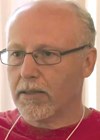
How is the medical community doing with assessing cognitive decline in those with a sensory impairment? The ALLIANCE Scottish Sensory Hub was tasked with finding out.
Background
There is growing evidence of a connection between dementia and sensory loss. However, while research largely focuses on establishing the nature of this connection, little attention has been given to how dementia is assessed for people with lived experience of deafness, deafblindness or visual impairment [1].
It is vital to identify deafness, deafblindness or visual impairment prior to assessing people for dementia for two main reasons:
- Communication is a gateway to realising human rights. Identifying sensory differences means communication approaches can be adapted so that information is accessible. Inclusive communication fosters informed decision-making and independence, and promotes person-led care.
- Communication barriers related to deafness, deafblindness or visual impairment can mirror dementia symptoms. Standard cognitive assessments cannot distinguish between dementia-related brain changes and communication barriers caused by sensory impairments. Inaccurate separation means that support planning is unlikely to be tailored to the needs of individuals [2].
Unfortunately, dementia care professionals and eye and hearing care professionals typically do not work together through a system of integrated care when assessing dementia and planning post-diagnostic support [3]. Exploring this issue, the ALLIANCE Scottish Sensory Hub published a report for the Scottish Parliament’s Cross-party Group on Deafness on the practices of health and medical professionals who carry out cognitive assessments for people who are deaf, deafblind or who have a visual impairment, and the hearing and eye care specialists who assess hearing and sight [4].
Research
The ALLIANCE developed four surveys, the target groups were GPs, other health and medical professionals, NHS audiology services and eyecare specialists. Questions focused on sensory assessments and referral systems within dementia care pathways.
Main findings
The survey results identified large variations in practice of the assessment of dementia in people with deafness, deafblindness and visual impairment, including BSL users. The results also identified a lack of integrated care pathways between dementia assessment and sensory assessment, as suspected.
The main findings from each group of professionals were as follows:
General practitioners (GPs)
Most GPs (76%) did not assess hearing and sight as part of a memory / dementia assessment, or only did so if sensory communication barriers were suspected. GPs heavily relied on subjective assessment methods such as observation or asking the person or their communication partners about concerns.
Only 6% of GPs specified that they would assess both sight and hearing as an integrated part of assessing memory / dementia. This is concerning because standard assessments rely on hearing and sight. They cannot detect the difference between difficulties related to brain changes caused by dementia, and those from sensory barriers to communication.
The survey asked what method GPs would use to establish sensory differences prior to performing a dementia assessment or support planning. Methods used varied widely and most risked not identifying deafness, deafblindness or visual impairment at all (Figure 1).

Figure 1: GP responses to the survey question, ‘How do you establish whether someone has sight and / or hearing loss before you commence assessments for dementia and / or support planning?’
While signposting or referral to vision and hearing care specialists was a method used by some GPs, in most cases this was prompted by the person or their family raising concerns, or the GP observing communication difficulties, instead of signposting and referral being standard practice.
GPs’ knowledge and application of memory / dementia tools designed specifically for people with deafness, visual impairment, or sign language users was very low, with 93% of respondents either not aware of any tools or unable to access them.
Non-GP health and medical professionals
Only 12% of non-GP health and medical professional survey respondents indicated they would assess both hearing and sight as part of a memory / dementia assessment. Others reported not performing sensory assessments at all, or only doing so if sensory impairment was suspected. As with GPs, professionals used subjective methods such as observation, or asking the person or their communication partners about concerns. This means sensory impairment could be easily missed, particularly at milder levels [5]. Respondents were asked how often sensory assessments take place and how often they are repeated. Only 37% of respondents answered this question indicating this may be a specific area of uncertainty. Most (60%) did not know, or stated that sensory assessments would not be performed routinely. Those who stated a sensory assessment would be performed at the initial assessment also inferred that repeat assessments would be undertaken ‘as indicated’ rather than at planned intervals. Respondents also suggested that sensory assessments were the role of GPs – this highlights uncertainty over who coordinates sensory assessments.
When asked what methods were used to establish sensory barriers to communication, respondents reported a wide variety of approaches. Most were subjective and lacking in formal diagnostic assessment (Figure 2).

Figure 2 : Non-GP health and medical professionals’ responses to the survey question, ‘How do you establish whether someone has sight and / or hearing loss before you commence assessments for dementia and / or support planning?’
Checking medical records was one of the most typical approaches (59%), which relies on GPs making an identification. This approach risks sensory communication barriers not being identified because health and medical professionals assume sensory investigations have already taken place.
Respondents were asked about specifically designed assessment tools for people with deafness and / or visual impairment, or for sign language users. Encouragingly, over half (55%) of health and medical professionals reported that they did use specific tools. However, from the six different memory / dementia assessments referenced in survey responses, only two are validated for use with people with deafness and visual impairment, and none were suitable for people with both deafness and visual impairment.
“Judge in the consultation. If no apparent issue, proceed as normal.” GP respondent
Without specifically designed and validated cognitive assessments, respondents shared that they would adapt standard assessments. This shows an understanding of the limitations of assessment tools for people with deafness, deafblindness or visual impairment. However, respondents were less informed about how adaptions impact the integrity of the assessment tool to measure different domains of brain health. There was particularly limited knowledge that direct translation of standard cognitive assessments into sign language is not appropriate.
“It is very difficult. I try to establish whether they have had recent hearing and vision tests, otherwise it is based on a clinical examination without any ability to perform objective testing.” GP respondent
NHS audiology services for adults
The survey for NHS audiology services for adults was completed by 12 services (out of 14 audiology services in Scotland). The survey asked about referral routes between audiology services and memory / dementia clinic(s). Most respondents (58%) stated there was no direct referral route, with 25% reporting that a direct referral route was available from memory clinics to audiology services. There was evidence that a framework for memory / dementia clinics to refer to NHS audiology services for adults does exist, but that knowledge of this is low.
Respondents were asked if their audiology service offers support for hearing assessments as part of an established memory / dementia assessment pathway. Most (75%) selected ‘no’, indicating there does not appear to be any formal integration of NHS audiology services for adults within dementia pathways.
Eyecare specialists
Eyecare specialists were asked if their service has a direct referral route to or from memory / dementia clinics. The majority (82%) reported that there was no direct referral route to or from memory / dementia clinics, and 14% stated they were unsure.
“If problems are evident during memory screening process, they will be directed to specific assessments.”
Occupational therapist
Eyecare specialists were also asked if their service offers support for vision assessments as part of an established memory / dementia assessment pathway.
Most respondents (76%) stated they did not, and a further 20% stated they were unsure. In keeping with NHS audiology service findings, there does not appear to be any formal integration of a vision assessment clinic within dementia pathways.
"Direct translation of standard cognitive assessments into sign language is not appropriate"
Discussion and recommendations
This research identified a lack of integrated care between dementia assessment services and hearing and sight care services. While this study was specific to Scotland, it aligns with international research showing that dementia care professionals and eye and hearing care professionals commonly do not work together during the assessment of dementia or post-diagnostic support. We recommend that:
- Sensory assessment services should be integrated with memory / dementia clinics and addressed in national dementia policies. Streamlining sensory assessment services would mean people with dementia and sensory impairments can access sensory care in a timely and accessible manner.
- Clear guidance should be provided by governments and professional bodies so that both eye and hearing care specialists across public and private provision are clear in their responsibilities. Guidance should include recommendations on information sharing across sensory assessment providers, and the health and medical professionals involved in diagnosing dementia and post-diagnostic support.
- All professional standards and guidelines for the assessment of dementia should be updated to reference best practice for hearing and sight assessments.
- Third-sector organisations involved in supporting people with dementia should be supported with relevant information on identifying and supporting sensory needs to ensure appropriate signposting.
- Governments should create a specific Dementia Strategy working group or similar involving eye and hearing care professionals to develop guidance which includes integration of sensory assessments for the assessment of dementia and post-diagnostic support.
This research is part of a wider project to develop a framework of sensory care standards for Scotland. The full report and more information on this project can be found at:
References
1. The Health and Social Care Alliance Scotland (the ALLIANCE). An explanation of the sensory language used by the Scottish Sensory Hub.
www.alliance-scotland.org.uk/policy-and-research/
scottish-sensory-hub/sensory-loss
2. Pye A, Charalambous AP, Leroi I, et al. Screening tools for the identification of dementia for adults with age-related acquired hearing or vision impairment: a scoping review. Int Psychogeriatr 2017;29(11):1771–84.
3. Littlejohn J, Bowen M, Constantinidou F, et al. International Practice Recommendations for the Recognition and Management of Hearing and Vision Impairment in People with Dementia. Gerontology 2022;68(2):121–35.
4. The Health and Social Care Alliance Scotland (the ALLIANCE). Dementia assessments for people with Deafness, Deafblindness or Visual Impairment. 2025.
www.alliance-scotland.org.uk/blog/news/
dementia-assessments-for-people-with-deafness
-deafblindness-or-visual-impairment-report-published
5. Höbler F, McGilton KS, Wittich W, et al. Hearing Screening for Residents in Long-Term Care Homes Who Live with Dementia: A Scoping Review. J Alzheimers Dis 2021;84(3):1115–38.
All links last accessed August 2025.
Declaration of competing interests: None declared.












